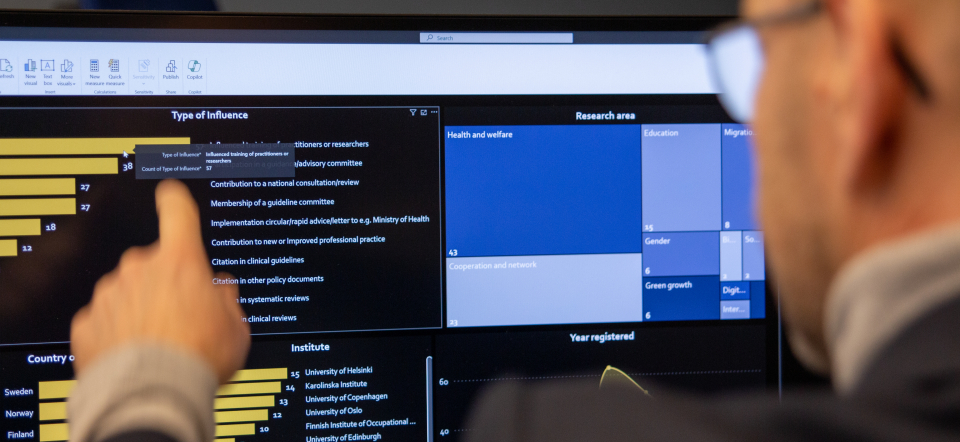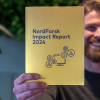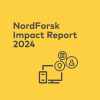The demands to demonstrate the benefits of public investment in research have increased. With this development, many institutions are aiming to measure and report not only on results, but also on the broader societal benefits these may have, the impact of research.
NordForsk recently carried out a study to explore how Nordic research councils work with research impact, interviewing key representatives from from Nordic research funding organisations. The results are presented in a report called Nordic Perspectives on Research Impact.
Studied organisations:
- The Research Council of Finland
- The Research Council of the Faroe Islands
- Formas, Sweden.
- Forte, Sweden.
- The Swedish Research Council.
- The Norwegian Research Council.
- Independent Research Fund Denmark.
- Innovation Fund Denmark.
- Rannís, Iceland.
The results show two simultaneous trends. The first trend points towards more structured, data-driven methods, with a growing interest in leveraging digital tools, automation and AI for data collection and analysis. The other is to use qualitative assessments, such as narrative and case study-based approaches, with the aim of complementing and adding nuance to the analysis. A further interesting observation was that the Nordic research councils report being largely unaware of each other's work in this field.
Notable observations are that impact is considered both difficult to define and challenging to measure. Perhaps impossible if we aim to demonstrate clear causal relationships with certainty, partly because of the inherently non-linear process of science. On the other hand, it is argued that investments in and results of research activities can be expected contribute to impact, or at least serve as indicators of impact.
According to the interviews, needs and aims are largely shared among the organisations even though methods may vary and knowledge on how peers work is limited. This implies that there is room for deeper co-operation, where data sharing and mutual learning are deemed to be readily accessible and benefical first steps.
Read/download report: Nordic Perspectives on Research Impact





